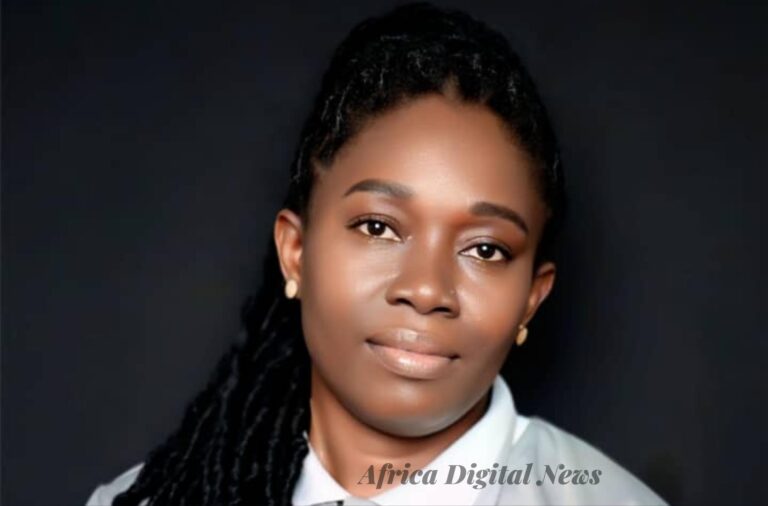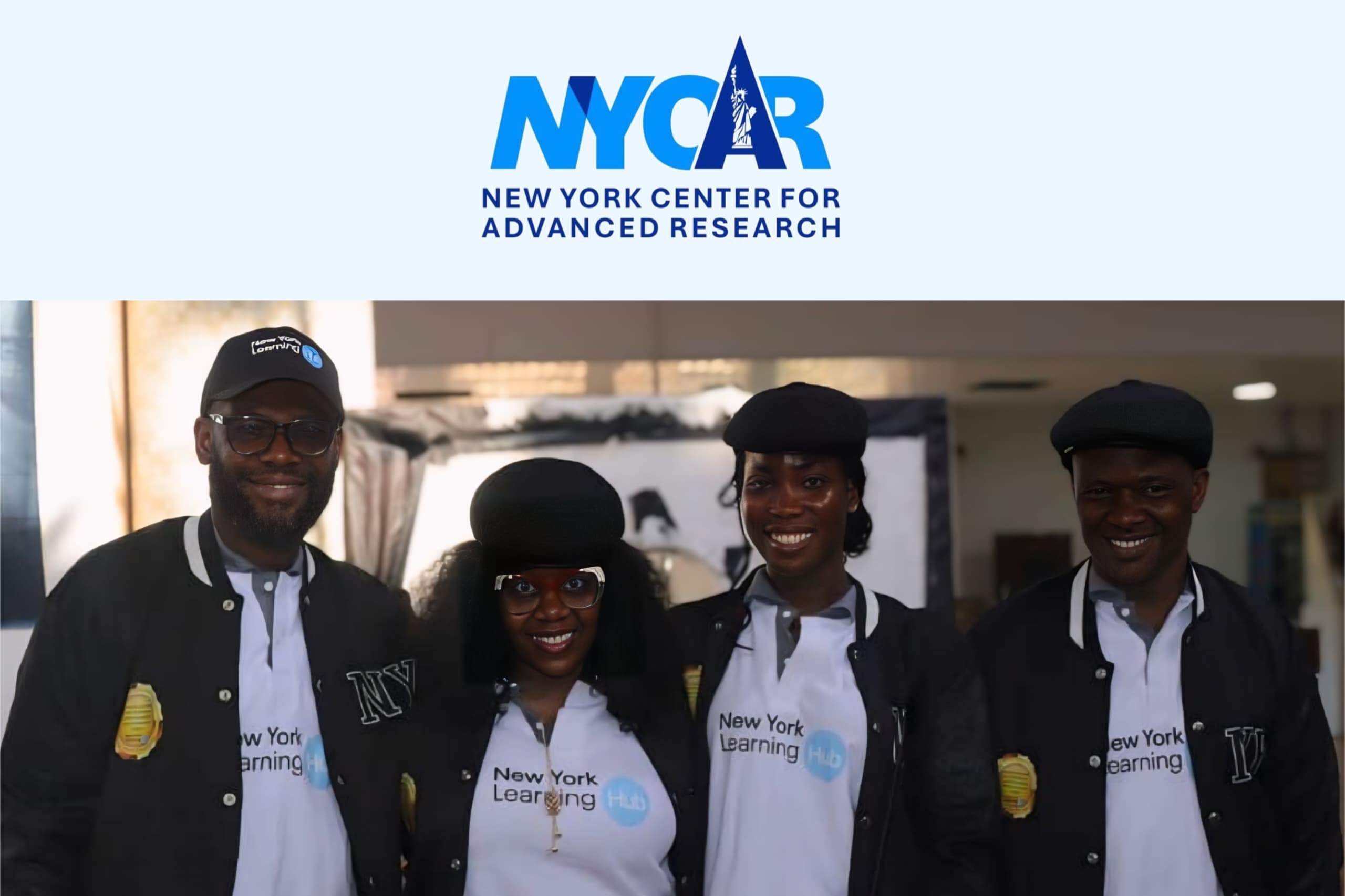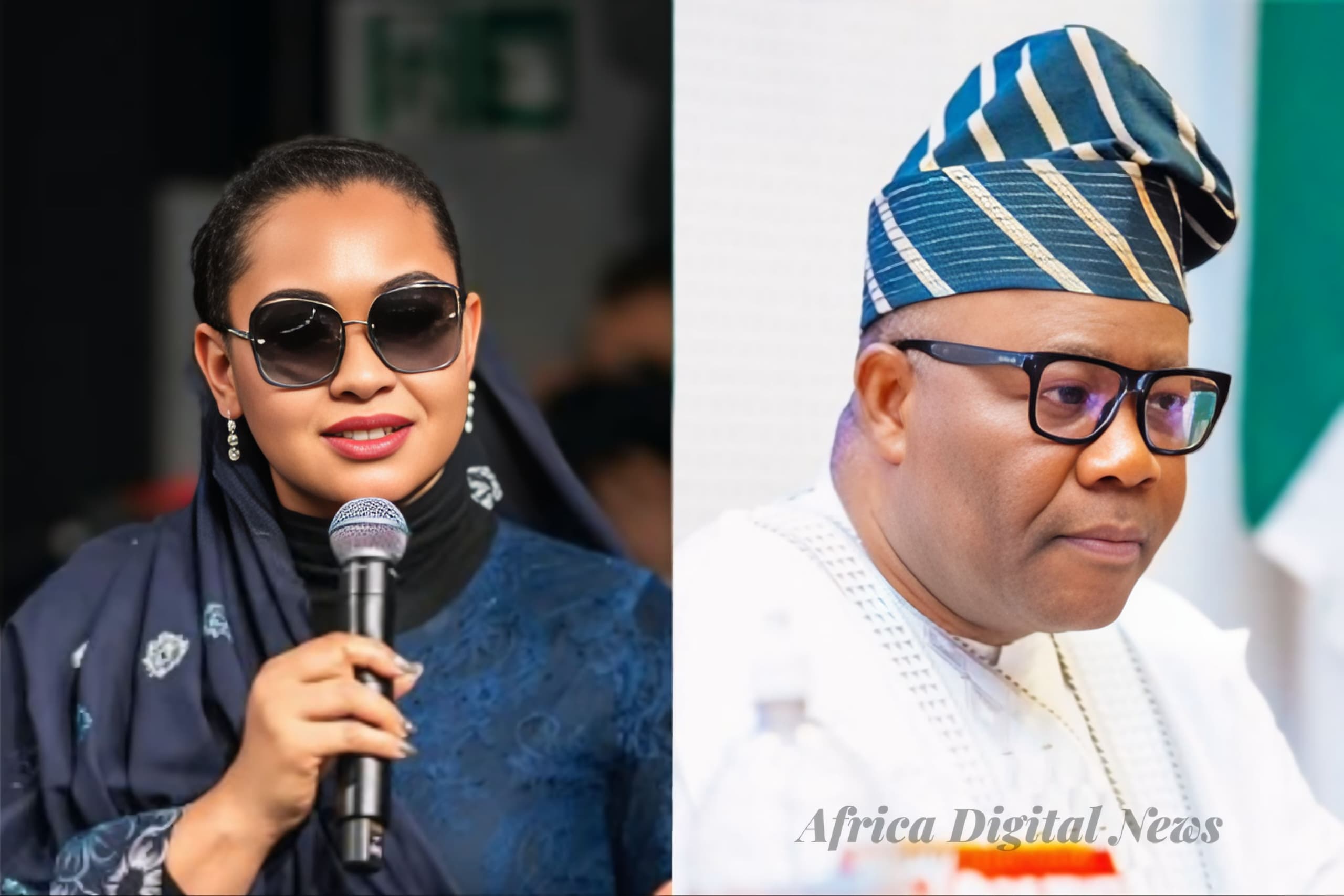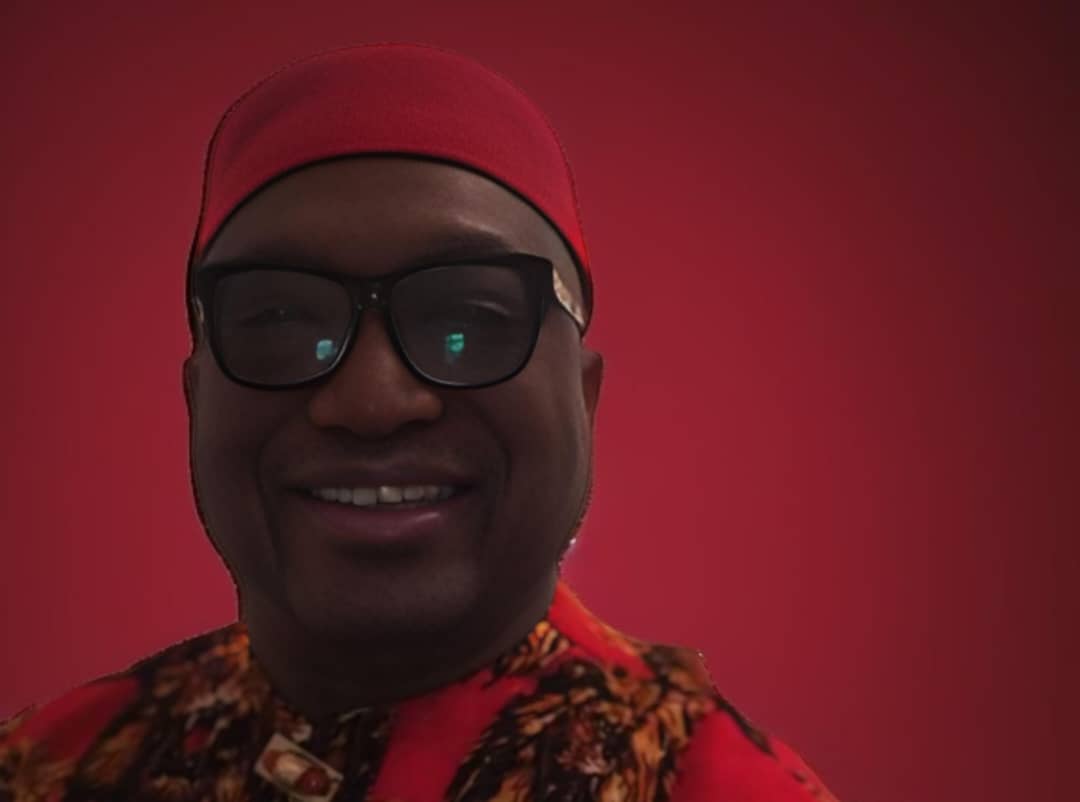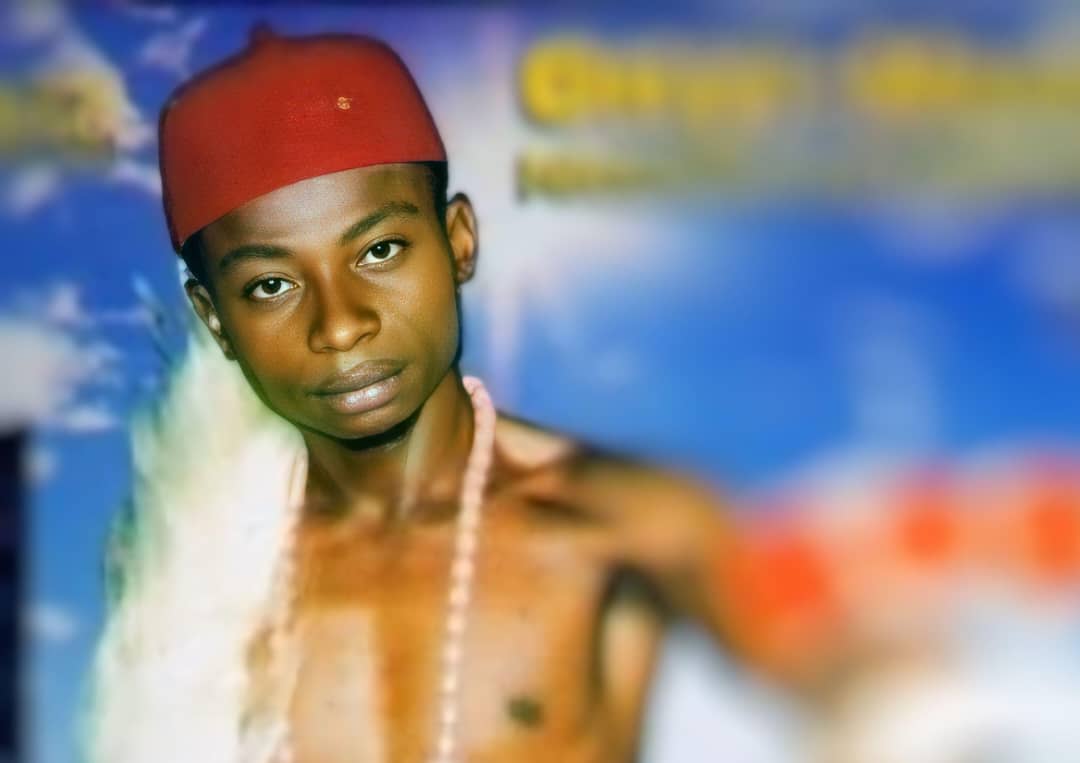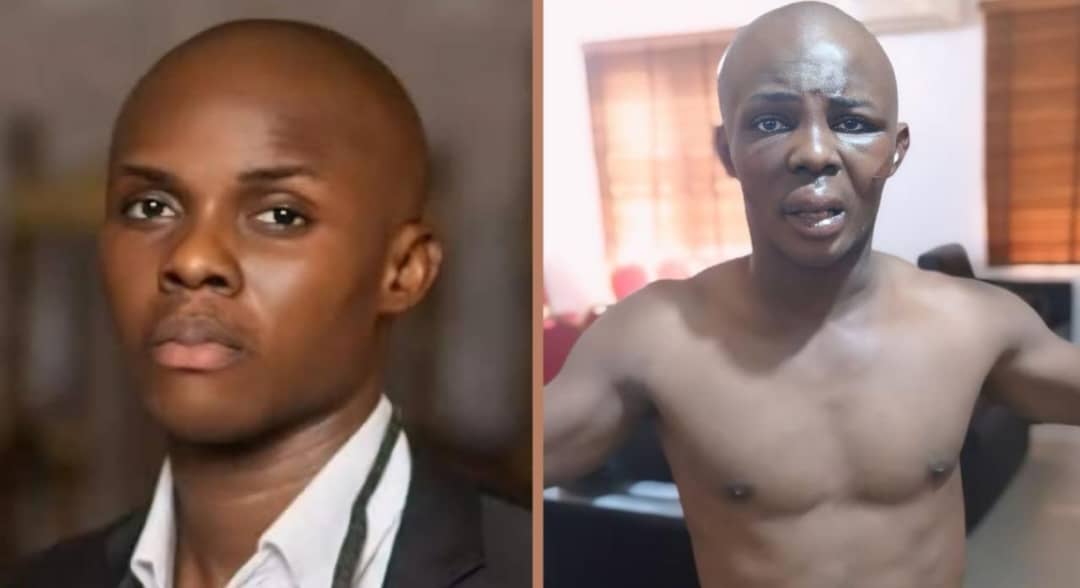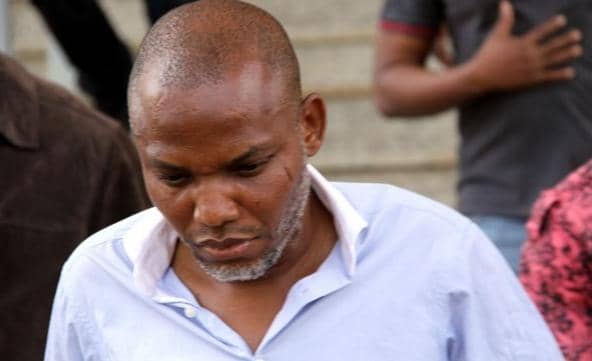In a time when intellectual property has emerged as the currency of the global knowledge economy, few voices are as timely, clear, and visionary as that of Theodora Kelechi Anurukem. A dynamic researcher and seasoned strategist, Ms. Anurukem is currently undertaking advanced research in Intellectual Property Law and Brand Management at the world-renowned New York Learning Hub. With a portfolio of postgraduate qualifications in strategic management, nursing leadership, and a rare specialization in research grant management, she exemplifies the kind of bold, interdisciplinary thinking the continent needs right now.
Africa Digital News, New York, had the rare opportunity to sit down with this distinguished scholar to explore the powerful intersection between intellectual property, brand development, and economic empowerment in emerging markets. In a wide-ranging and deeply thought-provoking interview, Ms. Anurukem unpacked her motivations, insights, and the purpose-driven journey that led her to this critical research.
At the heart of her work is a transformative question: how can Africa harness its creative and intellectual output—not just to participate in the global economy, but to lead within it? For Ms. Anurukem, the answer lies in shifting the narrative around intellectual property from one of protection to one of strategic empowerment. “IP is not just a legal necessity, it’s a tool for ownership, innovation, and legacy-building,” she emphasized.
Drawing from her experience in research grant systems and strategic leadership, she advocates for a future where African entrepreneurs, creatives, and institutions are equipped not only with the knowledge to protect their ideas but with the strategic foresight to turn them into scalable, globally competitive brands. Her research introduces original frameworks that connect legal innovation to economic impact—tailored specifically for the challenges and opportunities of the African context.
What sets Ms. Anurukem apart is her ability to bridge disciplines. Her approach is holistic, blending legal acumen, business strategy, policy insight, and cultural awareness into a coherent vision for sustainable development. And while her current work is being shaped by global best practices and research excellence at New York Learning Hub, her mission is resolutely Pan-African: to return with tools, models, and insights that can fuel the continent’s next generation of innovators.
This interview is not just a conversation, it’s a window into the future of African excellence in global intellectual leadership. Theodora Kelechi Anurukem is not only asking the right questions; she’s building the answers the continent needs.
Below is the full interview:
Ms. Anurukem, you’ve earned multiple advanced qualifications in strategic management, intellectual property law, and hold a research grant certification. What inspired you to deepen your focus in these fields through research at the New York Learning Hub?
Thank you for that thoughtful question. My journey has always been driven by a deep commitment to intellectual empowerment and innovation—especially in areas that have the potential to unlock sustainable transformation for emerging economies like those in Africa. Over the years, my academic pursuits in strategic management and intellectual property law have revealed a fascinating intersection: the realization that intellectual capital, when protected and strategically leveraged, is one of the most undervalued engines of economic growth.
Holding a research grant certification allowed me to engage with the practical side of funding frameworks and policy alignment, and that sparked a deeper curiosity—how do we ensure that the creators, entrepreneurs, and visionaries in Africa are not just producing value but also protecting and strategically managing it on a global stage? That question became my compass.
The New York Learning Hub stood out to me because of its rigorous academic environment and its uniquely global outlook. It’s a place where theory meets real-world relevance—where innovation, legal frameworks, brand architecture, and cross-sector strategy are treated not as separate silos, but as interconnected domains. It provides the ideal platform for me to challenge traditional assumptions, test ideas with real-time feedback, and collaborate with like-minded global thinkers.
What inspired me most, though, was the urgency. We are in an age where intangible assets—like brand reputation, intellectual property, and digital content—often outweigh tangible ones in corporate valuations. Yet, many of our institutions, entrepreneurs, and policy ecosystems in Africa are not fully equipped to harness this shift. My research is a response to that gap. It’s about building a bridge between strategic thought and operational impact, with a clear focus on creating frameworks that are not only globally aligned but locally transformative.
So, in essence, this phase of my journey is not just about acquiring knowledge—it’s about refining tools of transformation, and ensuring that Africa has both the legal infrastructure and the strategic foresight to compete and thrive in the global knowledge economy.
Your current research in Intellectual Property Law and Brand Management is taking place at one of the most dynamic learning environments in the United States. Could you walk us through the vision and purpose behind this research?
Absolutely. At its core, the vision behind my research is to redefine how emerging economies—particularly in Africa—understand, utilize, and leverage intellectual property and brand equity as instruments of strategic growth. We are living in a knowledge-based economy, where ideas, innovation, and brand identity now hold more power than traditional infrastructure. Unfortunately, in many developing contexts, these assets remain either underutilized or completely unprotected. That’s the gap I’m seeking to address through my work.
The purpose of my research at New York Learning Hub is twofold. First, it’s about developing a practical, adaptable framework that aligns intellectual property protection with brand development in a way that’s both legally sound and strategically scalable. I’m not just looking at IP from a regulatory lens; I’m also interrogating how it can be used as a dynamic tool to drive brand loyalty, investor confidence, and global market competitiveness.
Second, the research is deeply rooted in systems thinking—understanding that IP law and brand strategy don’t operate in isolation. They intersect with culture, with business models, with digital transformation, and with global policy trends. The New York Learning Hub has provided a research ecosystem that allows me to think critically and systemically, and to test ideas that challenge conventional legal and strategic models.
One of the most exciting dimensions of this work is its potential to empower African entrepreneurs, researchers, and institutions. It’s about helping them understand that a well-protected idea, when strategically branded and globally positioned, can become a catalyst for enterprise value and national development.
My research serves as a plan for practical implementation rather than merely a scholarly endeavor. It’s about translating global best practices into locally relevant strategies that can drive innovation, protect intellectual contributions, and elevate African brands onto the world stage. The Hub gives me the platform to do this with scholarly depth, global exposure, and the mentorship of some of the best minds in the field. It’s a rare convergence of purpose, platform, and passion—and I’m honored to be part of it.
Intellectual property is often underutilized in many emerging economies. How does your research explore ways to bridge the gap between legal innovation and strategic brand development, particularly in the African context?
That question touches at the very heart of my research. In many emerging economies, particularly across Africa, intellectual property (IP) is still viewed predominantly through a legalistic or procedural lens—seen more as a compliance obligation than as a strategic asset. That’s a fundamental disconnect. What my research aims to do is shift that mindset entirely—positioning IP not just as a shield for protection, but as a sword for innovation, value creation, and global competitiveness.
My work explores this through what I call the “IP-Brand Value Continuum”—a conceptual framework that connects the dots between legal innovation and brand strategy. It begins by reimagining IP law as a foundational component of business identity and moves through to how protected assets can be used to craft powerful, authentic brands that resonate globally. In other words, I’m researching how legally protected ideas, whether it’s a product design, a unique service delivery model, or even cultural expressions—can be packaged, branded, and positioned for long-term growth.
A key part of this research involves case studies from both global best practices and African enterprises that have succeeded, sometimes even inadvertently, in monetizing their IP. We look at what’s replicable, what’s contextual, and how policy, education, and leadership intersect to either accelerate or hinder IP commercialization.
Moreover, I’m deeply focused on accessibility. One of the barriers in Africa isn’t just lack of awareness, but also lack of systems that make IP protection and brand development approachable for startups, creatives, SMEs, and even traditional knowledge holders. So my research also investigates policy innovations, public-private partnerships, and digital platforms that can democratize access to IP services and brand-building tools.
By bridging legal innovation with strategic branding, I believe we can empower a new generation of African entrepreneurs—not just to protect what they create, but to scale it, license it, franchise it, and position it globally. That’s how economic resilience is built—not from aid, but from value recognition and value protection. My goal is to develop practical, scalable models that policymakers, institutions, and business leaders can adopt to unlock this immense, untapped potential.
The New York Learning Hub is known for its tailored, world-class training for global researchers. How has this environment influenced your thinking, and what specific tools or insights have you gained so far?
The New York Learning Hub has been nothing short of transformative for me—both intellectually and professionally. It’s one thing to pursue academic excellence in theory, but it’s another to be immersed in a dynamic, forward-thinking environment that constantly challenges you to apply your knowledge to real-world systems. The Hub connects academia with practical insights, influencing my approach to intellectual property and brand strategy.
One of the most profound influences has been the interdisciplinary exposure. Here, legal scholars are collaborating with brand strategists, innovation experts are dialoguing with policy analysts, and researchers like myself are being equipped to think beyond narrow specializations. It’s expanded my intellectual horizon and allowed me to explore how IP and branding sit within a larger ecosystem—governance, digital infrastructure, trade, and even cultural identity. I now understand that to truly build resilient IP systems in Africa, we must move beyond law textbooks and bring in technology, storytelling, leadership, and public engagement.
In terms of tools, the Hub introduced me to advanced data analysis platforms and IP valuation models that help quantify the economic impact of intangible assets. This has been crucial for my research because it allows me to provide empirical backing when arguing for investment in IP infrastructure. I’ve also gained exposure to design thinking methodologies, which I now use to craft more human-centered approaches to policy and branding challenges—especially relevant for Africa’s creative industries and startups.
Another key takeaway has been the mentorship. At the Hub, learning is not confined to lectures or coursework; it’s embedded in meaningful dialogue with thought leaders who are pushing boundaries in their respective fields. Through these interactions, I’ve learned the importance of asking better questions—of framing problems in a way that reveals root causes and invites transformative solutions.
But perhaps most importantly, the environment here encourages bold thinking. There’s a palpable sense of purpose that drives everyone—whether you’re researching blockchain patents or building frameworks for indigenous brand protection. It’s a place where your ideas are not just heard, but sharpened, refined, and elevated.
Being here has reinforced my belief that Africa is not lacking in talent or creativity, we are rich in both. What we need are ecosystems, structures, and strategic thinking frameworks like those I’ve encountered at the New York Learning Hub. My mission is to take what I’ve learned here and co-create similar innovation-driven environments back home, spaces where African knowledge is not just protected but powered for global impact.
With your background in strategic leadership and your training in research grant management, how do you foresee the future of intellectual property frameworks contributing to economic development across Africa?
I believe we are standing at a critical inflection point for Africa—a moment where intellectual property (IP) can either remain an underutilized concept or become a transformative engine for inclusive economic growth. From what I’ve seen and studied, IP frameworks, when strategically aligned with leadership, innovation, and access to funding, can unlock unprecedented value for the continent.
One of the key insights I’ve gained through my background in strategic leadership is that IP must move from the margins of policy conversations to the center of national development strategies. Our entrepreneurs, artists, inventors, and knowledge creators are generating enormous value—yet without solid IP protection and commercialization channels, that value often leaks away or goes unrecognized. Strengthening our IP frameworks is not just about legal protection; it’s about building the scaffolding for creative economies, innovation ecosystems, and global market entry.
Read also: Surgical Care Enhanced By Nursing Excellence By Anurukem
My training in research grant management has further shaped this perspective. I’ve come to understand how critical structured funding and research-backed innovation are in moving ideas from concept to scalable enterprise. Integrated IP frameworks, combined with grant support and innovation funding, enable local inventors and SMEs to secure rights and commercialize their ideas effectively.
I envision a future where African governments and institutions prioritize IP education at all levels, support local IP offices with digital infrastructure, and develop public-private partnerships that fund and mentor IP-rich ventures. Imagine a startup in Lagos or Kigali being able to seamlessly protect a new AI solution, build a brand identity around it, and access a regional grant to scale across borders. That’s the future I’m working toward—one where IP is not just seen as law, but as capital, as equity, and as a tool for empowerment.
The fusion of strategic leadership, IP literacy, and grant accessibility can fuel local ownership of innovation. It can also reverse the trend of brain drain and ensure that Africa’s intellectual contributions are not just protected globally, but also monetized locally. With intentional investment, policy reform, and cross-sector collaboration, IP frameworks can—and should—become a cornerstone of economic resilience and prosperity for the continent.
Are there any significant discoveries or reflections from your ongoing research that you believe could shift how brands in developing regions protect and grow their identity on the global stage?
Absolutely, and I must say, some of the most powerful revelations have been both eye-opening and urgent. One of the most significant discoveries is that many emerging brands in developing regions, particularly in Africa, possess a rich, authentic narrative that global markets are actively seeking—but these stories often lack structured legal and strategic protection. There’s an abundance of creativity, culture, and innovation, yet without a solid intellectual property (IP) foundation, these brands remain vulnerable to exploitation or are unable to scale beyond their local markets.
My research has revealed a critical misalignment: while many entrepreneurs focus on product development and visibility, they often overlook brand formalization and IP strategy. This isn’t due to a lack of interest, it’s often due to gaps in education, access to legal infrastructure, and insufficient understanding of how brand identity can be protected, valued, and expanded internationally. When a business doesn’t protect its name, its unique product design, or even its slogans, it essentially operates without an anchor in a highly competitive global marketplace.
But what’s equally promising is the shift I’m beginning to observe—a growing awareness and hunger for knowledge. As part of my fieldwork, I engaged with several African founders who, once equipped with basic IP tools, immediately began to restructure their approach to branding. They started thinking beyond logos and color schemes to brand as a legally recognized, monetizable asset. That mindset shift alone is transformative.
One of the frameworks I’m developing as part of this research is a simplified “Brand-IP Integration Matrix” tailored for startups and creatives in developing economies. It helps them assess their IP readiness, understand where their brand assets are most exposed, and prioritize protective measures—whether it’s trademarking their name, securing design rights, or drafting enforceable licensing agreements.
I also discovered that partnerships, particularly with diaspora legal experts, tech incubators, and academic institutions, can play a powerful role in helping emerging brands gain access to global best practices. Through collaborative research and training, we can decentralize brand protection knowledge and make it more accessible.
So yes, I’m confident that the insights from this research can shift the trajectory for many developing-region brands. The key is empowering them to see their identity not just as a passion project or cultural footprint, but as a strategic, defensible, and scalable asset that deserves the same protection and investment as any other form of capital. When that happens, we won’t just be protecting brands, we’ll be building legacies.
What advice would you offer to aspiring African scholars—especially women—who are considering a path that combines advanced research, strategic management, and global-level innovation?
My first piece of advice would be this: own your curiosity and don’t wait for permission to lead intellectually. Africa is at a tipping point, and the continent needs more visionary researchers, especially women, who are not only capable of asking tough questions but are bold enough to pursue the answers through innovation, policy, and strategic thinking. If you’re passionate about solving complex problems at the intersection of research and practice, then know that your voice is needed now more than ever.
Too often, I’ve seen brilliant women hesitate—not because of a lack of talent, but because of the internalized belief that global innovation and high-level research are reserved for a select few. That is a myth we must collectively dismantle. Excellence is not about where you begin, but how relentlessly you pursue your purpose. For me, combining advanced research with strategic management has been about bridging worlds—legal, academic, business, and development. It’s about connecting theory with impact, and that’s a space where African women naturally thrive when given the right tools and support.
Second, invest in interdisciplinary learning. Don’t silo yourself. The future belongs to thinkers who can synthesize knowledge across fields—who understand that IP law influences brand identity, that strategic leadership affects health outcomes, and that innovation must be both scalable and inclusive. This mindset has shaped my own journey, and I’ve found that the most powerful solutions are born at the crossroads of disciplines.
Third, seek global exposure but remain rooted in your local relevance. Research at institutions like the New York Learning Hub has shown me the value of international collaboration and high-standard academic rigor, but I never forget that the ultimate purpose of my work is to serve Africa—its entrepreneurs, its institutions, and its untapped intellectual capital. Let your ambition be global, but let your impact be deeply local.
And finally, build your tribe. Surround yourself with mentors, collaborators, and peers who see your potential and challenge you to grow. As African women in research and leadership, we are not just breaking barriers—we are rewriting narratives. So to every aspiring scholar and strategist out there: step forward. The future we’re dreaming of won’t build itself—it’s waiting for your mind, your voice, and your vision to shape it.
Ms. Anurukem, thank you so much for sharing your insights, vision, and expertise with us. Your journey is nothing short of inspiring, and your research is clearly poised to make a lasting impact both in Africa and globally. We are honored to have had this conversation with you and look forward to following your continued success.
Thank you once again—from all of us at Africa Digital News, New York.
Thank you sincerely for this opportunity and for the thoughtful questions. It has been a true pleasure to share my passion for advancing intellectual property and brand strategy as tools for Africa’s sustainable development. I am deeply grateful to Africa Digital News, New York, for shining a spotlight on these critical issues and for giving voice to a vision of African innovation that moves beyond rhetoric into real impact.
My hope is that our conversation sparks not only awareness but action—encouraging leaders, policymakers, entrepreneurs, and everyday citizens to reimagine how we protect our ideas, build our brands, and invest in our collective future. I look forward to continuing this work alongside a growing community of changemakers, and I remain committed to ensuring that the knowledge we cultivate today becomes the foundation for a stronger, more prosperous tomorrow for all Africans.
Thank you again for your support, your platform, and your belief in the power of purposeful research.

